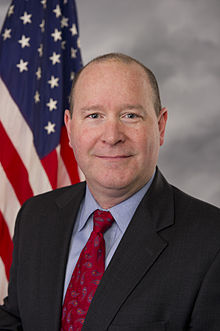(WASHINGTON, DC) – Eighth District Congressman Larry Bucshon, M.D. joined 34 members of the U.S. Senate and 170 members of the House in filing an amicus brief supporting petitions filed by 27 states, including Indiana, seeking to overturn the Environmental Protection Agency’s Clean Power Plan.
“These regulations would be devastating to Indiana’s energy sector, the thousands of jobs it supports, and the low cost energy it provides to seniors on a fixed income, the poor, and our manufacturers. Not to mention, these regulations are a clear overreach of the EPA’s legal authority,â€Â said Bucshon.“Congress has repeatedly tried to overturn these regulations through legislation; however, the President and his allies continue blocking our legislative efforts in order to protect their ideological climate change agenda. Now we’re taking the fight to the courts because we believe the way forward is through innovation and technology advancements, not unlawful federal regulations that cannot be met, damage the economy, and cost jobs. I’m proud to help file this amicus brief, in support of states like Indiana, requesting that the D.C. Circuit Court vacate these regulations that have been temporarily blocked by the Supreme Court.â€
The members reiterated that “all legislative Powers†granted by the Constitution are vested in the United States Congress and argued the Administration’s actions are outside its legal authority:
“The Final Rule goes well beyond the clear statutory directive by, among other things, requiring States to submit, for approval, state or regional energy plans to meet EPA’s predetermined CO2 mandates for their electricity sector. In reality, if Congress desired to give EPA sweeping authority to transform the nation’s electricity sector, Congress would have provided for that unprecedented power in detailed legislation. Indeed, when an agency seeks to make “decisions of vast ‘economic and political significance’†under a “long-extant statute,†it must point to a “clear†statement from Congress. Util. Air Regulatory Grp. v. EPA, 134 S. Ct. 2427, 2444 (2014) (quoting FDA v. Brown & Williamson Tobacco Corp., 120 S. Ct. 1291, 1315 (2000)). EPA can point to no statement of congressional authorization for the Final Rule’s central features, precisely because there is none.
“Nor has Congress authorized EPA to make the policy choices that are reflected in the Final Rule—a rule that imposes enormous costs on States and the public without achieving meaningful climate benefits. Because of the Final Rule, States will face unprecedented new regulatory burdens, electricity ratepayers will be subject to billions of dollars in compliance costs, and American workers and their families will experience the hardship of job losses due to power plant shutdowns, higher electricity prices, and overall diminishment of the nation’s global economic competitiveness. Choices of this nature are inherently Congressional decisions. See W. Minn. Mun. Power Agency v. Fed. Energy Regulatory Comm’n, 806 F.3d 588, 593 (D.C. Cir. 2015) (“Agencies are empowered to make policy only insofar as Congress expressly or impliedly delegates that power.â€) (citing Util. Air Regulatory Grp., 134 S. Ct. at 2445 (2014)). Congress has not authorized EPA to make the central policy choices in the Final Rule and, in many respects, has affirmatively rejected those policies, as it certainly did with respect to cap-and-trade programs for CO2 emissions from power plants.
“Accordingly, the Final Rule that has been properly stayed by the Supreme Court should now be vacated by this Court.â€




